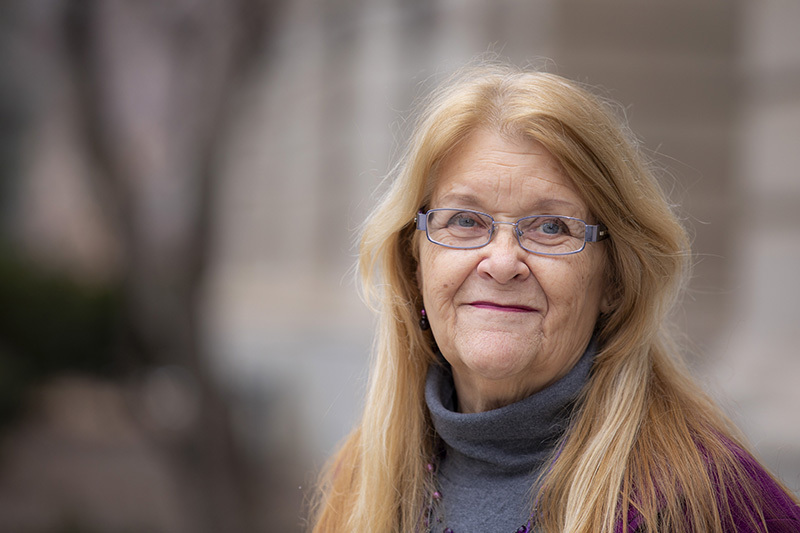Five questions with the retirement consultant
Author: Dave Roepke
This is an archived story. The content, links and information may have changed since the publication date.
Author: Dave Roepke

Ann Doty has been educating Iowa State employees about retirement since 1999. Photo by Christopher Gannon.
Ann Doty started her career as a social worker before migrating to financial advising, work she's done for the last 21 years at Iowa State as a retirement consultant in university human resources (UHR). Along the way, she's met with 300 to 400 faculty and staff per year for voluntary discussions about their retirement plans, more than 6,000 one-to-one meetings -- an entire generation of employees. On March 12, she's retiring herself. While overseeing her final session of Ready, Set, Retire -- a comprehensive workshop UHR hosts for potential retirees -- Doty took time last week to look back on two decades of preparing ISU employees for the new chapter in life she soon will enter.
Definitely. I went into financial advising because I realized as a counselor that one of the reasons women would get trapped in bad relationships was because they didn’t have the money to get out. If you can’t support yourself, you can’t get out, no matter how bad it is. I went into financial counseling largely to reach out to women. When I came to Iowa State, the university was concerned that, like most places, 25% of our male employees were saving extra for retirement and only 10% of the women were. Now we have the same percentage of women saving extra for retirement as we do men. I’m proud of that.
It’s always been a combination of education and sitting down with folks to talk about their specific situation. I encourage employees of all ages to save more money for their retirement and help hook them up with the right services to help their retirement be successful. Iowa State has an incredibly generous retirement program. But we’re living so much longer. My mama just passed away two years ago, and she was 18 days short of her 104th birthday. For many of us, we have parents who expected to work until 62 or 65, and they expected to be gone within 10 years. Well, that’s a pretty easy thing to save for. Retirement now lasts, for most people, anywhere between 15 and 40 years. Without a little nudge, younger people aren’t thinking that far ahead. Part of my job is to make sure that nudge is out there. We encourage new employees to go talk to the free TIAA financial planners every five years, or when you have a life change. Doing something for your future self every four or five years isn’t that much to ask.
May 15, end of semester. Second busiest time is June 30, end of the fiscal year. Third is calendar year. People go out in December. The university schedule is so set, and we encourage people to prepare beforehand. Don't wait until May 1 to retire on May 15. This is a life change, a life event. You should give it at least as much planning as deciding what car to buy. If you wait until the year before and they tell you that you need to save this much more before you go out the door, you don’t have any time. If you start five years early, you might very well be able to change your lifestyle and say, "Yeah, I can put away additional money." Or you can change your retirement date. The other thing that's very common here at Iowa State is going part time. Before my mom passed, I was driving to Bettendorf every other weekend. I went to 80 percent. No problem. There's a flexibility that a lot of times you don't find with a for-profit employer.
So many people have the same ideas, when you get right down to it. Grandkids are a big one. I’ve had people go back to school to get degrees. Volunteering always comes forward. Many people move in to second careers, things they would have loved to do but didn’t afford them a living wage. Now, they don’t have to be worried about being paid a living wage. They just go out and do it.
I expect to spend the first three to four months sleeping. Taking all my energy to do only what’s important to me, that’s an exciting thought. I’m pumped for that. I never anticipated working until I was 71, but I have had a very good time at Iowa State. This is an incredibly rewarding place to work. It allowed me to -- for 34 years, I was a part-time roadie for my husband’s weekend bands. But I would suggest that people take retirement planning more seriously than I did. I'm very embarrassed. All the advice I gave to other people, I didn't follow. It's much easier to share book learning with other people than it is to implement book learning into your own life.